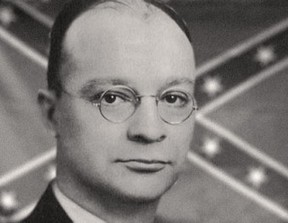 It comes as no great secret or surprise that Southerners love to tell stories. When it comes to politics, the stories they tell themselves aren’t always healthy or helpful. The South is getting some new grief as of late as New Yorker writer George Packer has stirred up the cyberworld with his musings on why the Southern mentality seems to have overtaken the Republican party. Packer quotes W.J. Cash and his seminal “The Mind of the South.” Cash was an alum of my alma mater Wake Forest, an accomplished newspaperman who committed suicide in Mexico in 1941. But he did provide an excellent study of the Southern capacity for romance and self-delusion. Cash debunked the myth of the aristocratic Old South of moonlight and magnolias, noting that most of the planters were only a few years removed from taming a wilderness into cotton fields. Their creed was a stubborn individualism where every white man largely had to fend for himself. Their churches preached an emotional fundamentalism that promoted not this world, but the next. Their political rhetoric favored the high-flown, the appeal to emotion. In short, the South had no real mind, no reason, but “a natural unrealism of temperament (that) bred in them a thorough-going self-satisfaction, the most complete blindness to the true facts of their world,” Cash wrote almost 75 years ago. Packer is right to point out that the Republicans seem to have suffered that unreality in the last election, riled by what they considered unreliable polling, unable to see what hit them until it was too late, and Karl Rove melting down in his memorable Fox News appearance on election night. Remember it was Rove, who in the Bush administration (truly Southern in outlook and temperament) chided a New York Times reporter for being a clueless “member of the reality-based community,” which he defined as people who "believe that solutions emerge from your judicious study of discernible reality." ... "That's not the way the world really works anymore," he continued. "We're an empire now, and when we act, we create our own reality. And while you're studying that reality—judiciously, as you will—we'll act again, creating other new realities, which you can study too, and that's how things will sort out. We're history's actors…and you, all of you, will be left to just study what we do." Rove might have been quoting from Cash’s own book. There were plenty of people in the Confederate South who believed they could create their own country, based on slave labor, and hold back the world’s growing moral outrage, and the industrial changes that were already transforming the northern states. What’s remarkable about Cash’s book is that he largely left the black perspective out of it. Growing up in his time, even as a progressive white Southerner, he wouldn’t have had much, if any contact with blacks beyond menial servants. He would never had guessed at the profound changes that the 1960s brought to our region, nor fathomed the idea that America at large would. Virginia, North Carolina and Florida helped elect the nation’s first African-American president in 2008, which speaks volumes about the changes that are still underway in the region. The GOP reclaimed North Carolina as a red state in November, but just barely. This is the land where I was raised and where I choose to live and write about. There’s no denying the terrible legacy in this land, from slavery to the how the Cherokee and other native tribes were treated, to how Hispanic immigrants are hounded in some states, or gays and lesbians, or anyone who’s a little different. But that’s not the only story. Some Southerners, some Republicans, (but also a great many liberal Northerners) seem stuck in their old stories about the South. What I resent as a fiction writer is the simplistic tale, the stereotype, the caricature that gives the lie to the reality I find changing day to day, year to year whenever I drive around the Southeast. Yes, the South is going to rise again, but not that old moldy Confederate corpse of unreality and delusion. Things are getting real down in Dixie, maybe slower than in some other burgs, but give it time. That Confederate red block of states on our election maps will show their true colors when Southerners of all creeds and races and parties take their stand.
6 Comments
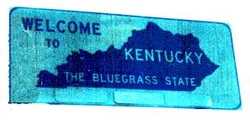 I made a quick jaunt up to Louisville, Ky., for Saturday's reading of winners and finalists in New Southerner's 2012 Literary Awards. Judge Silas Hall had picked an excerpt from my upcoming novel "The Half-Life of Home" for a second-place finish, but I saw a chance to get out of town. I love road trips through the countryside, following after of explorers and writers who have come before me. You can see the geography change along the Appalachians from the rocky Pigeon River gorge that Interstate 40 cuts through from Asheville toward Knoxville, then up Interstate 75 through Tennessee into Kentucky over the Cumberland Gap where limestone bluffs and outcroppings overlook what was Dan'l Boone's first footprints here. Then onto into what I consider Wendell Berry's neck of the woods, headed through rolling pastures of bluegrass (now brown grass in winter) toward the Ohio River. It was a real treat last to hear the poems of Amy Tudor, who won the James Baker Hall Memorial Prize for her poem "Studies in Extinction", followed by a knockout-out new as yet unpublished work. My thanks to editor Bobbi Buchanan for inviting me and for running such an excellent, high-quality magazine. You should check it out. What can you say? Driving around the old-time countryside, you develop an appetite, and Southerners are known to wear their tastes on their sleeves. They button up with pigs-knuckles, cloak themselves with collards, and tailor themselves with stone-ground grits. Strange you say? Haven't you seen the strange denizens of Green Bay, Wis., wearing wedges of cheese on their heads this time of year?
For the more literal-minded, I should explain. Toast is a real place, a community outside of Mt. Airy, NC, Andy Griffith's hometown and the model for Mayberry. I took this with my old Nikkon back in the early 80s when I fancied myself the next amateur Walker Evans. I found this in an old stack of 8X10s during a visit to my folks down in Winston-Salem over the holidays. Happy New Year! No hangover this morning. The collards are on the stove along with the hopping john for good luck. The football is about to begin along with a new calendar, counting off the handful of days until my novel is officially out.
I was honored when my pal Nan Cuba, author of the fine upcoming novel BODY AND BREAD invited me to join a blog chain THE NEXT BIG THING - a series of self-interviews by/with authors about what they’ve been working on. Thanks, Nan, and I’m looking forward to seeing your novel coming this May. So here’s what happened when I sat down with myself and asked a few probing questions to which I fortunately knew the answers: Question: Let’s start with the obvious. What’s the name of your book? Answer: THE HALF-LIFE OF HOME Q: Can you give me the one-sentence synopsis? A: Finding your family or losing the land: Royce Wilder, a real estate appraiser, and Kyle McRae, a homeless man, face those hard choices in unearthing long-buried secrets in the mountain community of Beaverdam, N.C. Q: Sounds intriguing. Where did the idea for the book come from? A: I had an image in mind that haunted me. Men in white spacesuits moving across a mountain. They were workers in HazMat suits shielded against radioactive materials, excavating a cemetery on a hillside, digging up the graves of long lost generations, removing them from their land. I had to write a book to find out what happened. Q: What genre does your book fall under? A: Literary fiction with a contemporary Southern Appalachian setting, but the book should appeal to any reader who likes a well-made story about ordinary folk facing extraordinary challenges. Q: What inspired you to write this book? A: Place is character in fiction, I had the good fortune to once hear Eudora Welty say that during a reading in Asheville, and that’s proven true in my own writing. For me, the primal heart of my fiction revolves around the mountain farm my grandparents owned in Watauga County near the N.C.-Tennessee line. The farmhouse and barn and outbuildings, the wooden bridge over the creek, the outcroppings and hemlocks up on the two opposing mountains, the Frozenhead and the Buckeye, all those things spoke to me as a young boy visiting on weekends. That land has since passed out of my family with the death of my grandmother, but it informs my dreams and my fiction. Q: Who’s publishing your book? A: Casperian Books out of Sacramento, Calif., is an independent publisher founded by Lily Richards, who still sees a place for finely crafted fiction in various genres in today’s fragmenting publishing scene. While too many books are being rushed out without oversight, Lily put HALF-LIFE OF HOME through its paces with some great suggestions and a close line-by-line edit. I couldn’t be prouder of the work she put into the production of my second novel. Q: How long did it take you to write the first draft of your manuscript? A: I started this book the day after I graduated from Warren Wilson College with an MFA in creative writing way back in January 1989. After spending so much time focused on writing short stories for workshops and answering to supervisors, I was determined to write a novel all by my lonesome. How lonely it could be I was soon to discover. It probably took me about six months to write a 400-page first draft and I still remember that sense of exhilaration: “I’ve written what looks like a novel.” But that was only the beginning. It took several more drafts before I talked an agent into taking a look around 1992. She sent it back with the suggestion to cut it by 100 pages. I did. She took it on and shopped it around New York. Eighteen houses all told took a pass and the agent cut me loose. I went on and wrote another novel and then a third, “Cow Across America.” Then hiking one day up in the mountains north of Asheville, I came across what needed to be done with that first novel. I can still remember the bend of the Mountains-to-Sea Trail where the Muse suddenly whispered the solution. In the original book, the main character, Royce Wilder came across as an immature man, still acting out against his parents even as a grown man. I decided to split his character into two, a fretting father and an adolescent son in rebellion. Adding 14-year-old Dean changed all the family dynamics and the basic plot line. Perseverance is what I’ve found really matters in a quarter century of making books. If a writer takes care of the writing, the publishing takes care of itself. “Cow Across America” won the Novello Literary Award from the Charlotte Mecklenberg Public Library and was published in 2009. Casperian Books took on “The Half-Life of Home” back in February of last year. The novel officially hits the shelves on April Fools Day (no fooling.) Q: What other books would you compare this story to? A: Wendell Berry’s “A Place on Earth.” Fred Chappell’s marvelous series of novels starting with “I am One of You Forever.” John Ehle’s neglected masterpiece “Last One Home.” Gail Godwin’s “Father Melancholy’s Daughter.” Q: What about a movie? Which actors would you choose to play your characters? A: It’s hard to put faces on characters who seem real but are in the end made up of words on the page. If I were a Hollywood casting director, I’d say Bill Murray possesses the wryness and interior self-doubt to play Royce. Joaquin Phoenix (Anyone see “The Master”?) has the angular angst necessary for the part of the homeless man, Kyle. I can see Allison Janney (remember her from The West Wing?) as Eva, Royce’s unhappy wife. One of my favorite all-time actors Robert Duvall as the aging uncle, Dallas Rominger. And if we’re going big-budget, why not Meryl Streep in makeup as the “witch woman” Wanda McRae. Q: What else about your book might pique the reader's interest? A: Literature is about loss, summoning up a time and a place in words that will last beyond the lifetimes of our loved ones and the places they lived. Mountaineers have been forced off their land since the Cherokees were herded along the Trail of Tears. Homesteaders were forced out by the fed- eral government in the 1930s to make way for hydroelectric dams. After the war, they left their farms to find jobs in Piedmont cotton mills or car factories up north. As a cub reporter in the ’80s, I covered hearings where federal bureaucrats earnestly debated turning remote mountain coves into a national nuclear repository. That image haunted me: what if radioactivity leaking out of these ancient mountains forced people off their land? Read Nan Cuba’s self-interview about BODY AND BREAD here. Passing the baton, I’ve tagged a couple of writers who you should check out: Marjorie Hudson is the author of ACCIDENTAL BIRDS OF THE CAROLINAS, a fine collection of short stories that was a finalist for the PEN/Hemingway Award. Michael Jarmer is the author of MONSTER LOVE, a contemporary twist on Mary Shelley Wollenstone’s classic “Frankenstein.” MaryJo Moore is a fine Native American writer and editor living here in Asheville. Her latest volume of wisdom is BEAR QUOTES. You might also be interested in these writers who I know are part of the NEXT BIG THING chain. Joe Schuster, whose book, THE MIGHT HAVE BEEN is a terrific baseball novel with a compelling human story. Christine Hale, an Asheville memoirist and novelist whose guest blog will appear Jan. 5 here: Happy New Year and happy reading in 2013. |
Dale NealNovelist, journalist, aficionado of all things Appalachian. Archives
April 2023
Categories
All
|
|
© Dale Neal 2012. All rights reserved.
|
Asheville NC Contact
|
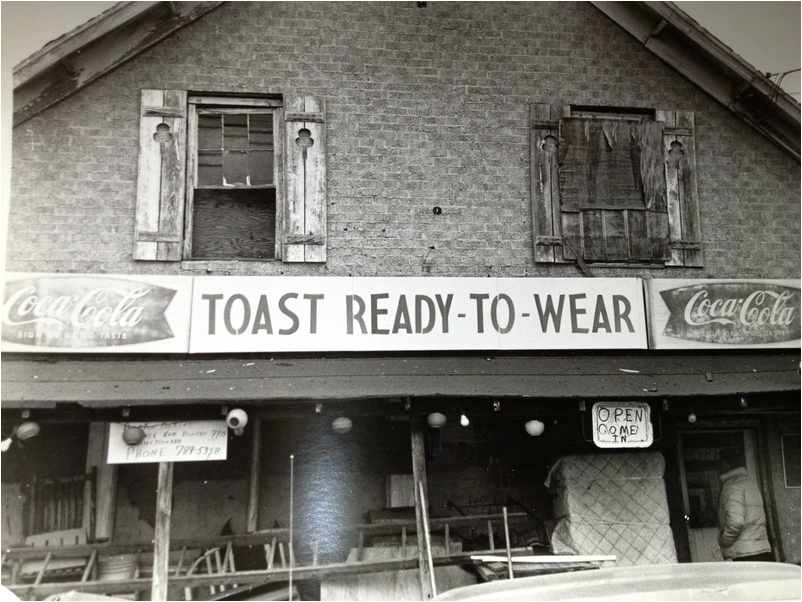
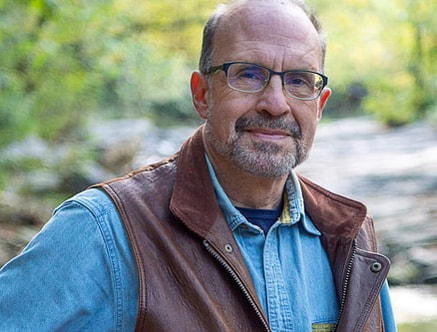
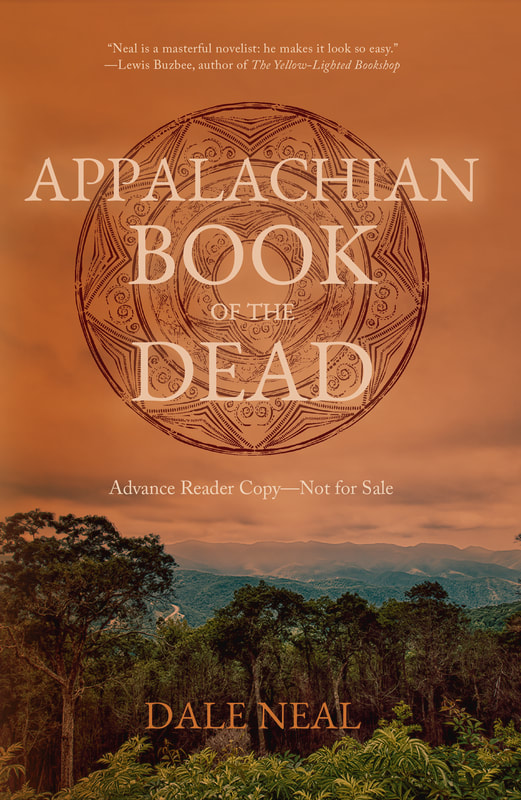
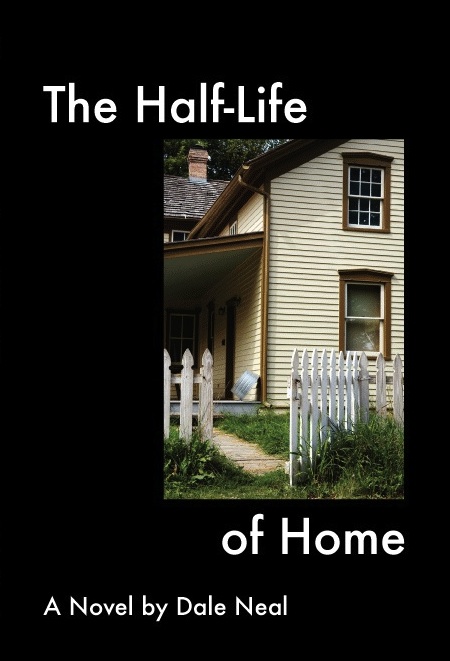
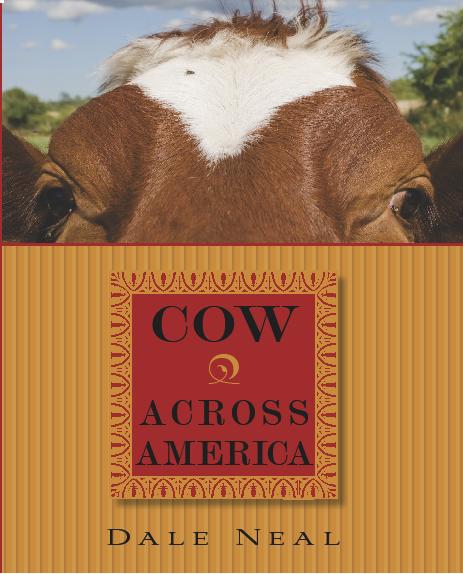
 RSS Feed
RSS Feed